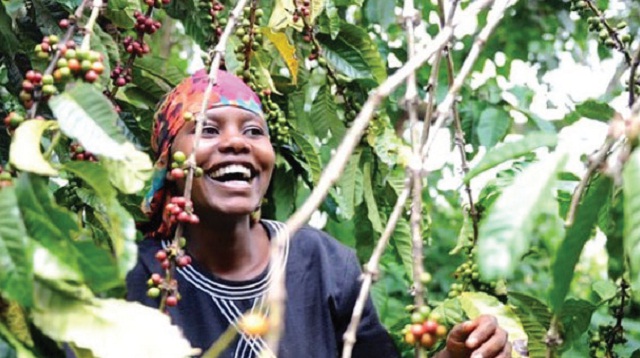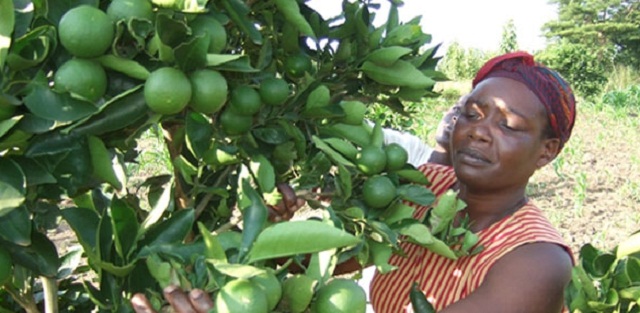
Kampala, Uganda | THE INDEPENDENT | Despite increased allocations by government, private players and the donor community towards Uganda’s agriculture financing, the sector has remained underserved. A 2017 report by the Uganda Agribusiness Alliance on agriculture financing notes that whereas several government and donor facilities have been established to provide capital for agriculture enterprises, majority of those who need the funds have not been served.
The report found that agriculture remains financially underserved due to low bankability of the enterprises. This is majorly caused by high real and perceived risk levels, lack of business and investment preparedness, which experts say is due to lack of appropriate advisory services.
The report notes that majority of agriculture enterprises in Uganda lack capital at the start up stage when it is most needed. But all types of financiers including grant making bodies, venture capital firms and commercial banks are all eager to finance agriculture enterprises that have taken off.
Most enterprises are reported to lack capital in their first three years of establishment when investment in things like green houses, irrigation and storage infrastructure are made. Even after these investments have been made in there is still little interest from lenders, until banking history, which can take up to seven years has been established.
The report notes that most financiers prefer to only fund business that are well established. This establishment can take up to ten years.
In addition to the failure by financiers to lend money to enterprises that need it, Fred Muhumuza an independent researcher with expertise in Development Economics adds that the policy environment for the demand and supply of agriculture financing is also poor.
Muhumuza cites the case of Bank of Uganda which currently requires banking institutions to provide for a default cost of 20 per cent of the loan, after 60 days of a borrower not paying. This amount increases to 30 per cent in the next and keeps increasing until it reaches 100 per cent.
Muhumuza says that such a blanket policy requirement disadvantages agriculture enterprises, which employ majority of Ugandans and whose products should be designed according to seasons.
Seasons can be anywhere between four months and a year, making it impossible for enterprises making money out of agriculture to pay their loans within the Bank of Uganda mandated period. This makes lending to agriculture costly for licensed financial institution.

Agriculture finance remains low
As a result of all these problems, agriculture financing has remained low, despite several initiatives intended to change this state of affairs.
Irene Sekamwa the Agrifinance Policy advisor at the Netherlands Development Agency (SNV) says that research done between 2007 and 2015, found that agriculture financing remained below 11 per cent of the total private sector credit.
Although no research has been done on this subject since, as Bank of Uganda prefers to track credit to the private sector and the government funded Agriculture Credit Finance, experts say the proportion of agriculture financing can’t have changed much, as it had started to decline by 2015.
Poor financing is despite different investments in this area by both government and the donor community, whose development experts have over the years, bean looking to increase capital to enterprises that employ a majority of Ugandans.
Currently Uganda is spending money in different financial institutions as a way to increase agriculture production and agro-processing. In the financial year 2018/2019, Uganda will for instance Uganda allocate Ush80 billion ($21.9 billion) to the development banks. This is in addition to the Ush50 billion ($1.4 million) provided to Uganda Development Bank for capitalisation.
According to the budget framework paper, currently being discussed by parliament, the funding to the likes of the Uganda Development Bank and East African Development Bank is meant for capitalisation of these financial institutions. With cheap capital from the development banks, Uganda is supposed to register increased agriculture production and agro processing leading to enhancement of the population’s incomes.
In addition to funding the development banks, Keith Muhakanizi the permanent secretary in the ministry of finance adds that due to political pressure, there are several other initiatives including the Agriculture Credit Facility (ACF), the northern Uganda social action fund (NUSAF), the women’s fund and youth fund, projects through which government disperses billions of shillings for agriculture financing.
Through the ACF Uganda has so far disbursed Ush141.1 billion ($38.6 million), but would have spent more had the number enterprises in need of this money been more. Another Ush40.1 ($11 million) will be disbursed in the current financial year for the women’s fund. This is in addition to a youth revolving fund worth Ush265 billion ($72.5 million), which has been temporarily suspended due to high default rates. The government also owns credit institutions like the Microfinance Support Centre, Post Bank and Pride Microfinance all of which provide agriculture financing.
Government’s efforts are supplemented by the donor community, as several other initiatives including the agricultural business initiative (aBi) which is funded by several European countries to provide capital and advice to enterprises along the agriculture value chain. Under a different initiative the European Union working with the National Social Security Fund and the International Fund for agriculture established $12 million fund for the same purpose.
 The Independent Uganda: You get the Truth we Pay the Price
The Independent Uganda: You get the Truth we Pay the Price




Dear sir,
Being private family-owned funder Ag/food Tech ORGANIZATION to small scale farmers since 1975,have innovated AG-TECH industrialization for our funded survival , our R&D/in-house ind technologies reshaped EU/USA dried processing lines at 20 times less cost, innovated dried processing/production lines invented, as professional sheets failed to kill food waste, so invented production lines saved/dried process our funded farming. Developed A COMMON DRIED PROCESSING SEASONAL PLANT, in 25/25 villages under food/agri/rural/urban dried processing/infrastructure partnerships for survivals , our commercial field ind/future based AG/TECH has been owned by EU/USA universities/research institutes etc , all submitted ABSTRACTS accepted .
OUR original industrial AG/TECH is in a position to start dried processing, 1/3 FOOD LOSS during 2018 instead of 2030, at the turnkey basis, all SDGs has been industrialized
We are seeking to transfer our industrial AGTECH to your organization and 9 billion dollars LOSSES may be converted into profit by the application of 10% to our invented in/house industrial dried processing technologies/road maps, our game changing industrial AGTECH is the future of AGRICULTURE. SCIENTIFIC/TECHNOLOGICAL ZERO FOOD LOSS SOLUTIONS HAS BEEN IMPLEMENTED PRACTICALLY IN OUR FUNDED FARMING.
It is a matter of fact that our R&D CLUSTERS, INNOVATED every practical industrial value added dried processing solutions at sourcing sites,our 40 years of AG TECH is in a position to give TURN KEY BASIS practical ZERO FOOD LOSS solutions, in any part of FOOD WASTAGE.
Similarly, if 10% of $9.00 Billion is spent on our least cost effective dried processing lines/ROAD MAPS/PRODUCTION SHEETS etc, the 90% of $9.00 Billion may be started saving under our ind ag-tech partnership during 2017,instead of 2030.
Our DIGITAL FARMING APPLICATIONS/24 HOUR EMERGENCY HELPLINES, also strongly killed FOOD WASTAGE at early stage, being private funder, we provided big technological multiple value added ind drying solutions to small scale farmers to kill food wastage at sourcing.
Our PRE/POST HARVEST/Digital farming Ag-Tech processing innovated trials training’s are also available for application in any part of food loss areas.
We also offer PRIVATE/PUBLIC INDUSTRIAL COLLABORATION, AgTech applications/industrial based dried processing research partnership at scientific/technological practical ground realities and AG/TECH abstracts acceptance are being attached for transfer of AG-TECH for ZERO FOOD WASTE,please add us to the mailing list/newsletters/events/applications etc and seeking PARTNERSHIP in shape of technological/scientific TRANSFER OF ZERO FOOD INDUSTRIAL DRIED PROCESSING TECHNOLOGY IN asia/africa to kill poverty/hunger practically in 2018 instead of 2030.
Regards,
Liaqat Ali,
ceo
LIAQAT CORP (PVT) LTD
54/Z ST# 9
PEOPLES COLONY
GUJRANWALA
PAKISTAN
Cell/923214854343
http://www.phltechnologyaid.com